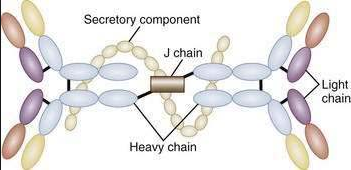
The Importance of Secretory IgA For Our Immune Health and the Probiotic Bacteria That Can Help
Secretory IgA (SIgA) is the primary immunoglobulin produced on the mucosal surfaces of the body. This not only includes the lining of the digestive system, but also the sinuses and nasal passages, upper respiratory system, the eyes, bladder, vagina, and urethra in both men and women. Secretory IgA helps in preventing antigen (i.e., allergen, bacteria, yeast) penetration through the various mucosal surfaces, as well as neutralizing a pathogens ability to proliferate and expand their particular tissue penetration. Without adequate SIgA production our body is vulnerable to excessive overgrowth of opportunistic infections and systemic immune dysfunction. Once it is secreted it plays a number of specific roles within the immune system, such as:
- Inhibits pathogen adherence to the mucosal membrane
- Neutralized viruses
- Prevents various pathogen toxins from infiltrating the mucosal lining
- Down regulates the immune response for what is called ‘oral tolerance’
- Regulates other immune reactions
Breastfeeding is crucial for SIgA production, but certain normal gut bacteria, such as Lactobacillius species, also help in the development of this immunoglobulin as well. Listed here are some less known intestinal flora with positive influence on induction of Secretory IgA production:
- Lactobacillus rhamnosus – favorably stimulates immunity, as well as helping against preventing pathogen adherence.
- Lactobacillus casei – increases SIgA production and favorably acts against pathogens such as H. pylori, pathogenic E. coli and shigella-toxin damage.
- Lactobacillus plantarum – improves mucosal immune function and helps against pathogens such as clostridia bacteria.
- Bifidobacterium bifidum – supports SIgA production by activating B-cell IgA production
- Bifidobacterium longum – augments intestinal SIgA production against food antigens
- Bifidobacterium breve – stimulates Peyer’s Patch B-cell proliferation and antibody production. Also, helps to neutralize various intestinal pathogens such as campylobacter and clostridium.
- Bifidobacterium lactis – increases phagocytic activity of various immune cells, as well as SIgA production against clostridia toxins.
- Saccharomyces boulardii – this is not a bacteria, but instead a non-pathogenic yeast with positive influence on SIgA production.
Many of these bacteria are found in multi-strain, high quality probiotic supplements.




